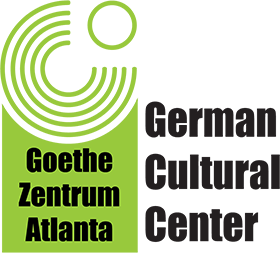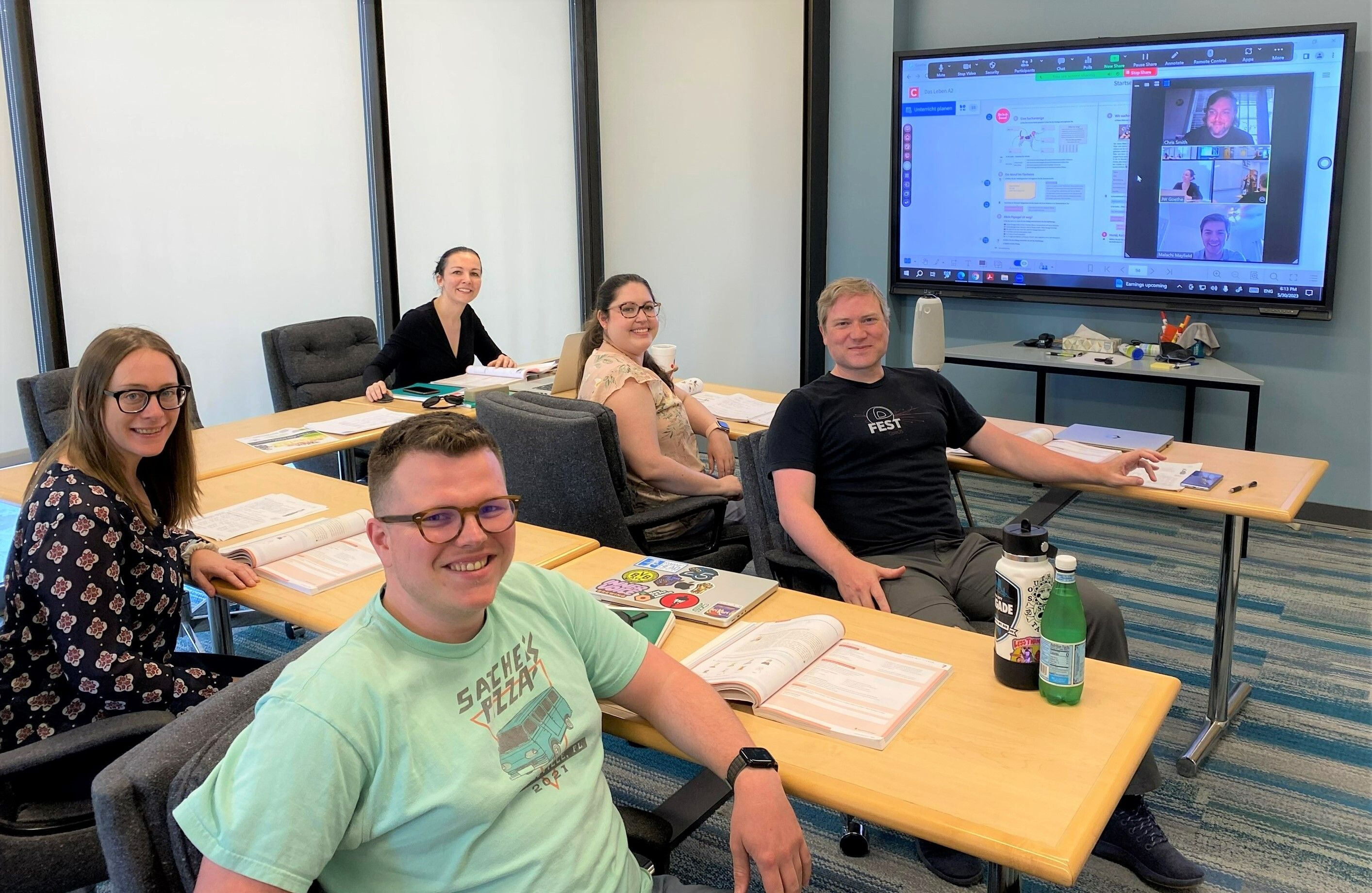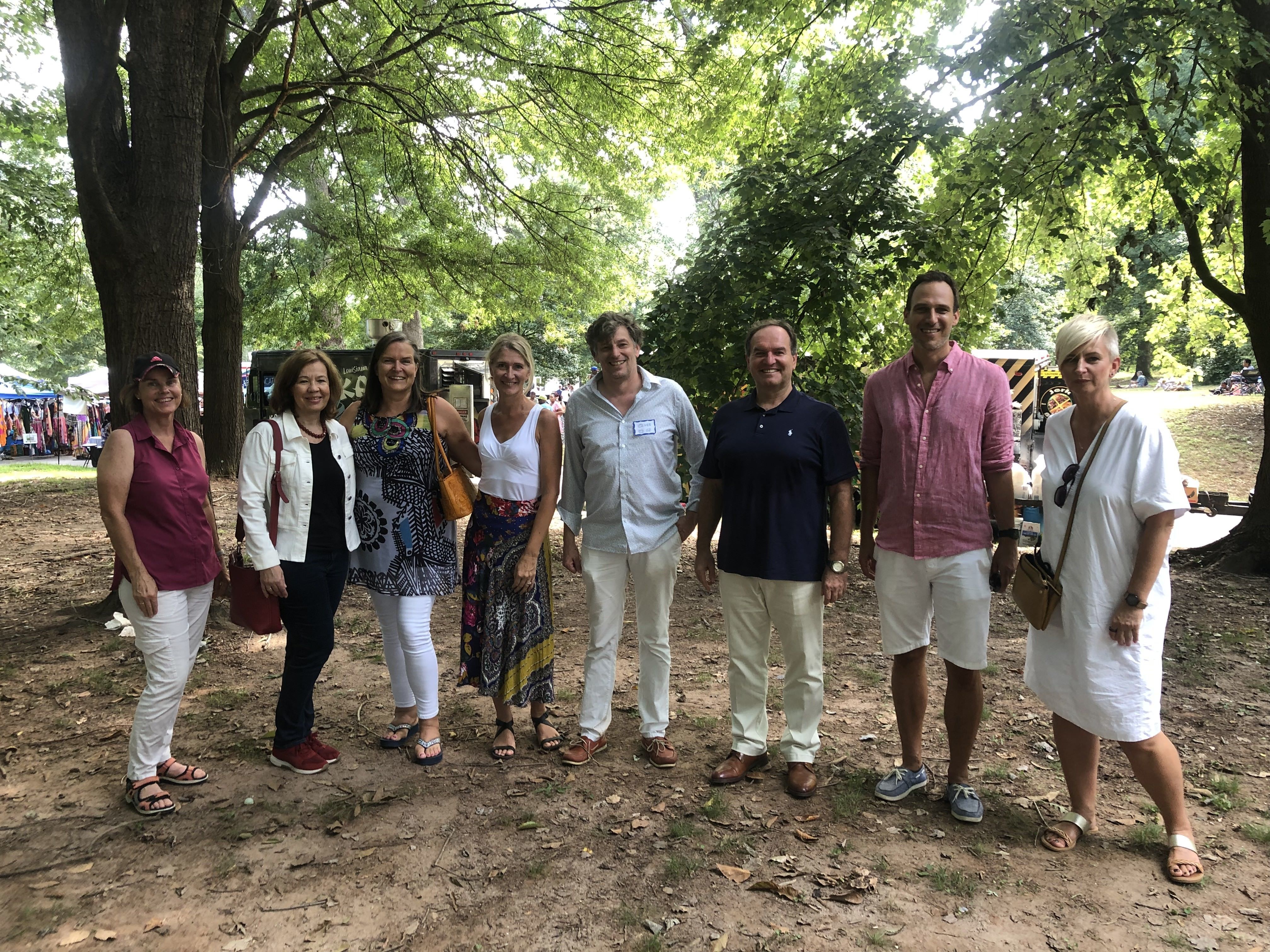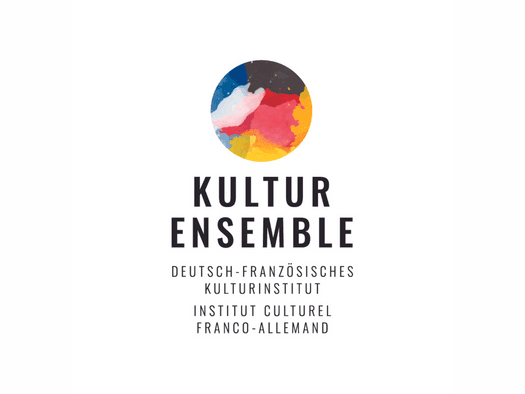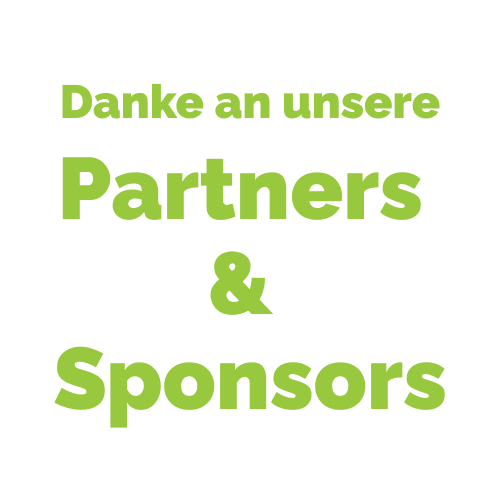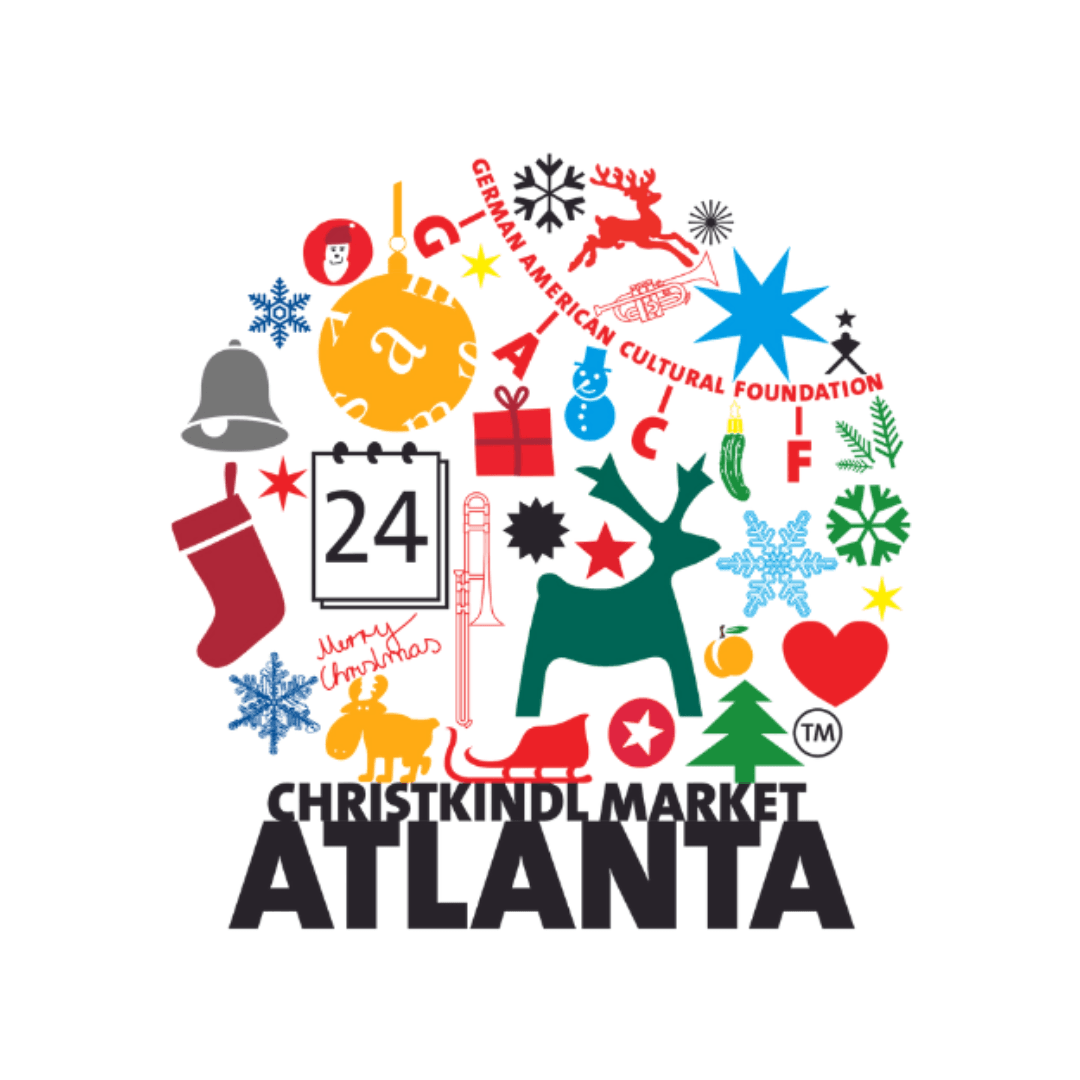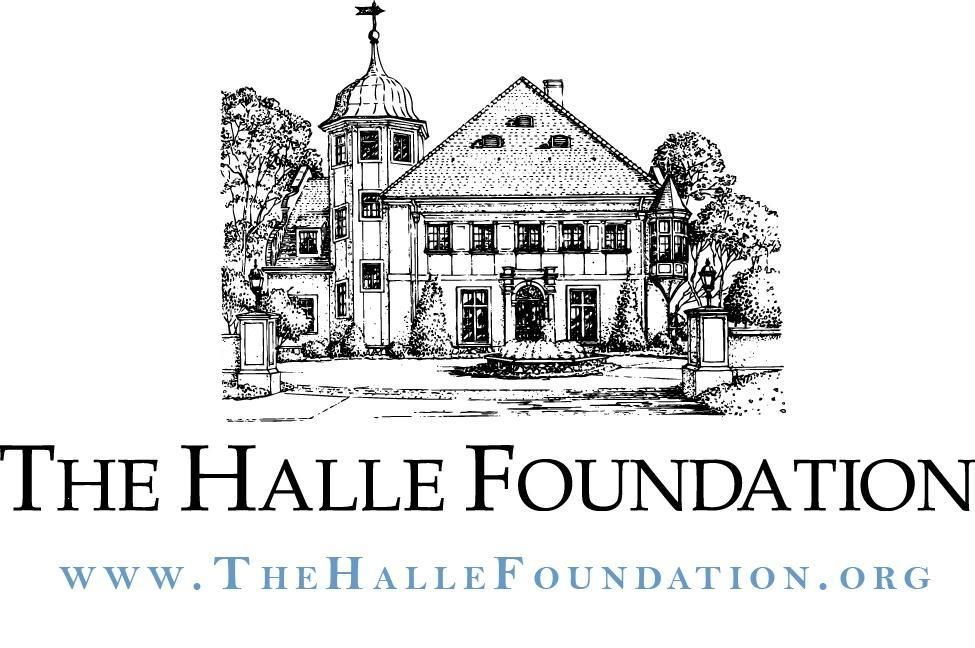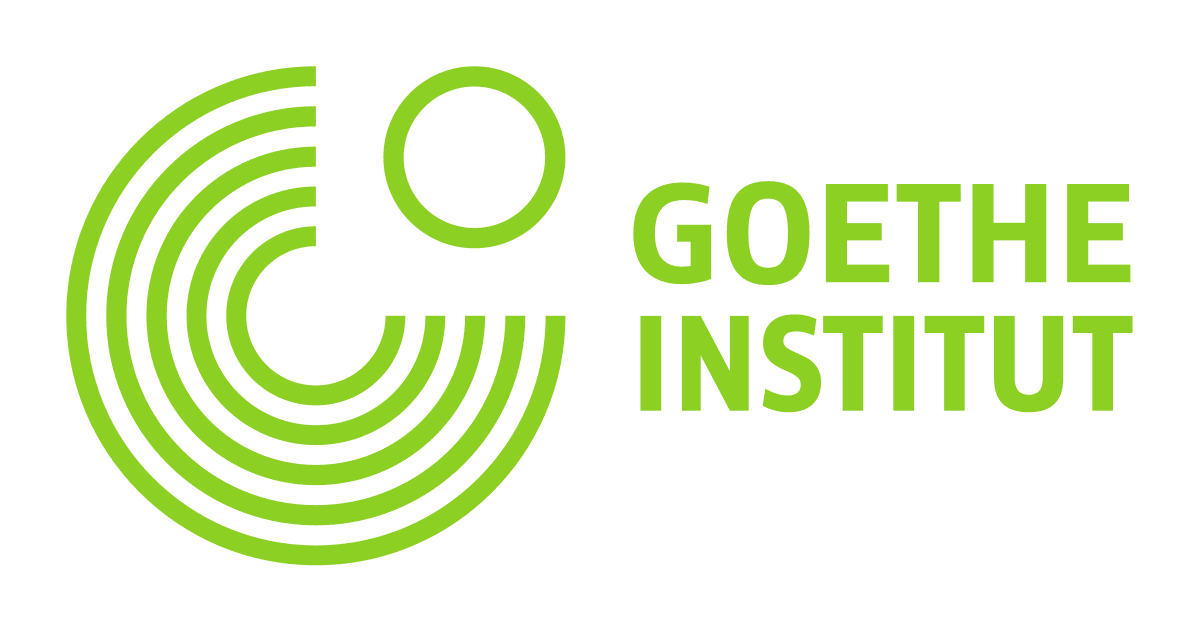Event Calendar
GERMAN ROMANTICS FESTIVAL
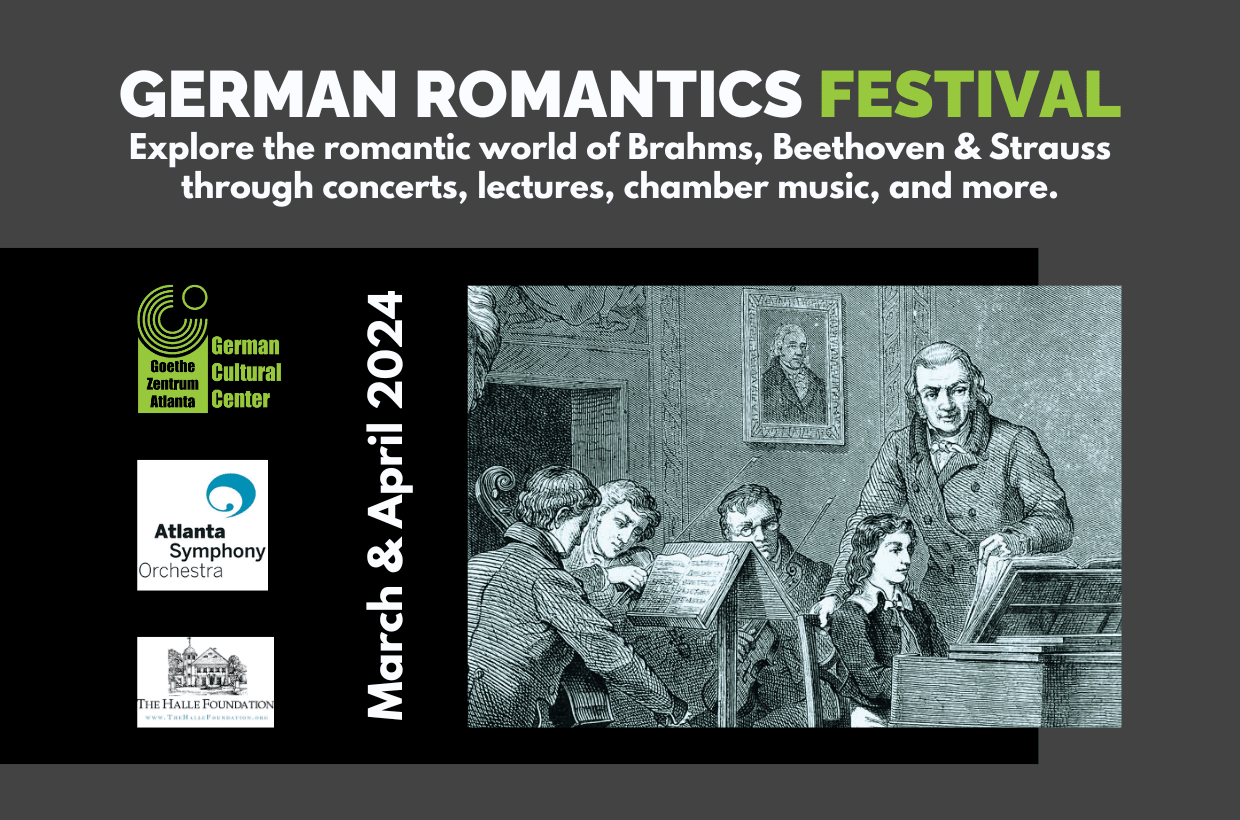
The GERMAN ROMANTICS FESTIVAL is here!
Over the next several weeks we are exploring the romantic worlds of music from Brahms, Beethoven, and Strauss through concerts, lectures, literature, theater, chamber music, and more.
Look for ROMANTICS events in our calendar or direct links below ... including the link to the Atlanta Symphony Orchestra.
And plan to join us on April 28 for our annual extravaganza - this year themed "ECHOS OF THE ROMANTIC RHINE". See link below.
_______________________________________________
Dear Goethe-Zentrum Members, keep an eye out for emails with special invitations for members-only events and discounts.
_______________________________________________
The German Romantic period, or "Romantik," was a cultural, literary, and artistic movement that flourished from the late 18th to the mid-19th century. It was characterized by a focus on emotion, individualism, and a yearning for the infinite and had a profound impact on various aspects of German culture and beyond.
Philosophical influences:
The ideas of Kant, Fichte, and Schelling played a significant role in shaping the German Romantic movement. Kant's emphasis on the power of the human mind and the importance of individual experience, Fichte's concept of the self as an active, creative force, and Schelling's philosophy of nature all contributed to the Romantic focus on subjectivity, emotion, and the relationship between the individual and the natural world.
Literature:
German Romantic literature was characterized by a rejection of Enlightenment rationalism and a celebration of the imagination, emotion, and the inner self. Novalis's fragmentary, poetic style and mystical themes, E.T.A. Hoffmann's exploration of the uncanny and the fantastic, and the Brothers Grimm's collection of folk tales all exemplify the Romantic interest in the irrational, the supernatural, and the power of storytelling.
Music:
Composers of the German Romantic period sought to express the full range of human emotions and experiences through their music. Beethoven's later works, particularly his symphonies and string quartets, are often seen as a bridge between the Classical and Romantic eras, while Schubert's lieder (art songs) and Schumann's piano works and song cycles are quintessentially Romantic in their emotional depth and individual expression.
Painting:
German Romantic painters, such as Caspar David Friedrich and Philipp Otto Runge, were known for their depictions of the sublime beauty and power of nature. Friedrich's iconic paintings, like "Wanderer Above the Sea of Fog" (1818), capture the Romantic sense of awe and the individual's smallness in the face of the infinite, while Runge's works often incorporate mystical and symbolic elements.
Nationalism:
The German Romantic period coincided with the rise of nationalism in Europe, and this had a significant impact on the movement. Romantic writers, artists, and thinkers sought to celebrate and promote a distinct German cultural identity, drawing on the country's folklore, mythology, and history. This can be seen in the Brothers Grimm's collection of German folk tales, as well as in the works of poets like Adelbert von Chamisso and Joseph von Eichendorff.
The German Romantic period left a lasting legacy, influencing later artistic and intellectual movements, such as Symbolism and Expressionism, and contributing to the development of modern ideas about art, individuality, and the role of the artist in society.
